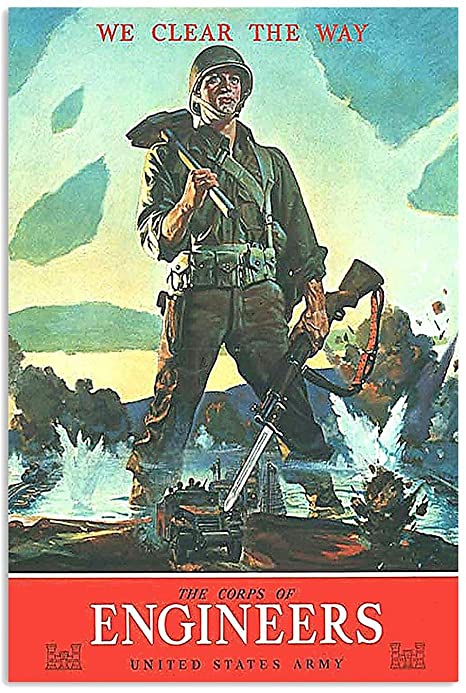
I often think of my father on Veterans Day. He was inducted into the US Army on December 11, 1940, did his basic training at Fort Bragg (which doesn’t need renaming), and was first assigned to a quartermaster company. He transferred to the Corps of Engineers in 1942 and remained in that branch the rest of his 28 year military career.
He, like most veterans of WW2, got out after the war, got married, and went to school on the GI Bill. He graduated college and became a school teacher for a few years. Along the way he joined the local National Guard unit. Then in 1953, he transferred from the National Guard back into the Regular Army where he remained on active duty until he was medically retired in 1972. He passed away almost nine years to the day after his retirement.
I know about his military career in detail because I got his records from the National Personnel Records Center in St. Louis. It is part of the National Archives. As next of kin, I was entitled to get his records. My first request to the NPRC got about 20 pages of documents and replacements for all the medals and ribbons earned. My second request resulted in a stack of paper about 2.5 inches thick. It contained much of his medical history, his evaluations, his re-enlistments, and his entire military history.
It contained both the good and the bad. It seems my dad was AWOL at the replacement depot in Miami on the morning of January 1, 1945. Go figure.
If your deceased father or mother served in the armed services, I would urge you to request a copy of their records. You learn so much about the person who helped create you. It might not always be what you want to hear but it is what it is. For those living veterans with children, I would say get those records anyway. One day it will be too late for your kids and grandkids to ask what did dad or mom do in the Army (or any of the armed forces). Put them away in a safe place if you don’t feel like sharing now.
To all those who served our great nation, I say thank you. It may have been during peace time or during a war. Nonetheless, it was a sacrifice and for that I’m eternally grateful.


If they were still alive, a lot of the old Confederates might support renaming Ft. Bragg. While competent and even visionary, he was impossible to get along with. Supposedly, every general officer serving directly under him either resigned their commission, wrote a letter to Jefferson Davis demanding Bragg’s relief or challenged Bragg to a duel. An amusing but telling incident occurred when he was in the US Army before the war. He was double-hatted as the commander of a post and the supply officer of a higher echelon. He filed a request for some item, then as supply officer denied his own request, then he switched roles and protested. Back and forth it went until a superior officer finally put an end to it. “Dammit Bragg, you have fought with every officer in this command and now you are fighting with yourself.”
Of course, these passions have cooled and we are in a different war now and should resist a name change.